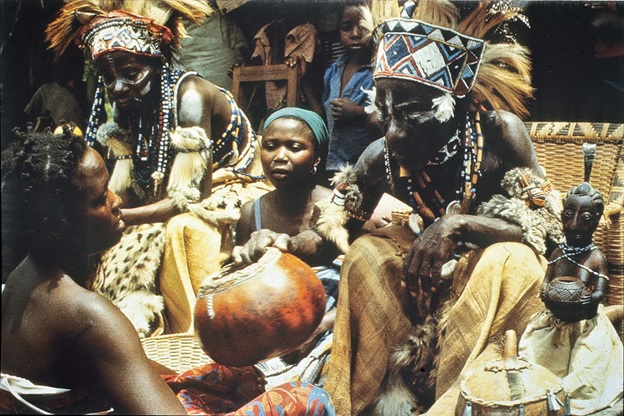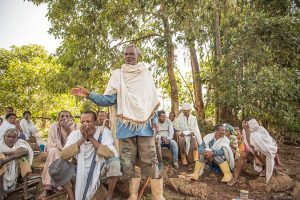
Historical books have shown that Africa had been preserving traditional knowledge and practices for many years. However, after the arrival of Europeans for colonization, traditional practices began to diminish as exploitation primarily targeted the socio-cultural and religious ties of the people. Since culture and social construction are essential for identifying and shaping society, exploitation in these areas was multidimensional and extensively documented in the continent’s history.
Sociologists and historians have found evidence that Africa had its own knowledge and practices to deal with life’s challenges. From ancient times to the present day, the people of the region had a strong connection with nature. They sought solutions to their problems, such as health issues, through various traditional methods.
As agreed upon continentally and planned by the African Union, African issues should be resolved and decided by Africans themselves. There are various efforts in every aspect to achieve this goal. Nowadays, Africans are increasingly looking into their ancestors’ knowledge and traditions. Experts in the field argue that Africa has much to offer for exploration through science. Traditional practices and connections with nature are gaining attention from scientists worldwide.
Professor David G. Milu, Africa’s most published author and scholar of African spirituality, recently gave a lecture on Africa’s potential and history of traditional practices and beliefs before colonialism. He noted that the current religion and Western civilization were deliberately introduced by Europeans to influence African identity. The practice of African traditions was portrayed as primitive, while adopting white philosophies and beliefs became synonymous with civilization. However, Professor Milu believes that Africa is now reclaiming its culture and traditions. He encourages scientists to come to Africa, study traditional practices, and use the knowledge to solve human problems.
Dr. Joyce Wangari, a multidisciplinary psychologist, expressed concern that Africans do not always value their own prophets, knowledge, and traditions, instead elevating prophets from other regions. She believes that African knowledge and traditions have successfully addressed challenges that science alone cannot solve, particularly in mental health. She advocates for a combination of clinical diagnosis and African spiritual practices to tackle such issues.
Dr. Sylvester Annami said, a lecturer and scientist, noted that lifestyle diseases are increasingly affecting Africa due to people moving away from traditional foods. The continent’s cultural food systems contain nutritious and organic ingredients, as evidenced during the Covid-19 pandemic, where reliance on local foods like ginger helped Africans combat the virus. He emphasized the importance of traditional foods for health and resilience.
In Ethiopia, people have preserved traditional knowledge of using natural ingredients for treating diseases. The writer recalls grandmothers using natural plants as herbal medicines, such as curing malaria with traditional way of treatments. There is a renewed interest in tracing back to these traditions and knowledge, with universities and research institutions conducting scientific examinations and research to preserve and utilize this valuable heritage.
Dr. Seid Mohammed, the director of the Language and Culture Research Institute at Arba Minch University, was interviewed exclusively by The Ethiopian Herald. He mentioned that the university focuses on research and studies that explore the indigenous traditional practices and knowledge of the nation. Dr. Mohammed emphasized that Ethiopia holds hidden knowledge and traditional practices that could greatly benefit the nation if studied and explored scientifically. The institute is currently conducting studies in the Southern Nations and Nationalities region, where they have discovered magnificent traditional practices related to nature and spirit.
For example, in the GamoDubusha culture, the practice of truth-telling is connected to nature. When someone makes an oath, they are surrounded by elders who point out natural elements like mountains, trees, birds, and graves. If the person speaks falsely, the powerful association with nature causes them to shake. The institute has organized a scientific team to further study these unique practices and identify the scientific justifications behind them.
Professor David emphasized the importance of the scientific community and education sectors delving into this hidden knowledge, demystifying myths, and preserving African culture. He urged researchers to explore these traditions to prevent history from being forgotten.
Scholars argue that Africa’s traditional practices could be the source of modern science. By examining and understanding these traditions, we can link science, research, and traditional medicine to benefit our communities and continent. Dr. Mohammed highlighted Ethiopia’s wealth of traditional medicines and practices, emphasizing the importance of approaching them scientifically to benefit the nation.
African traditions should be a primary focus for scholars, as they hold the key to societal improvement and development. By incorporating indigenous practices into educational curriculums, we can pass down the knowledge and influence future generations. Understanding and preserving the real history of African ancestors is crucial for shaping the region’s future. Let us prioritize our traditional values and strengthen them through research.
By: MEKDES TAYE (PhD)
THE ETHIOPIAN HERALD SATURDAY 28 DECEMBER 2024



